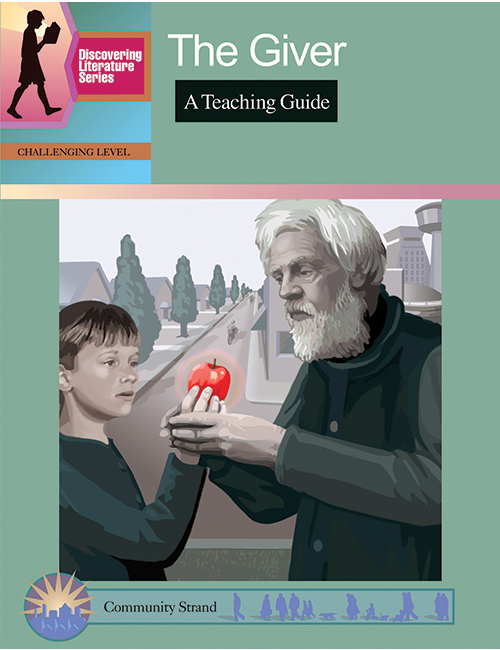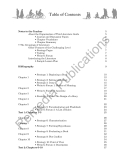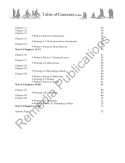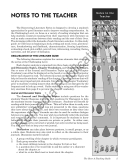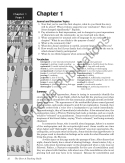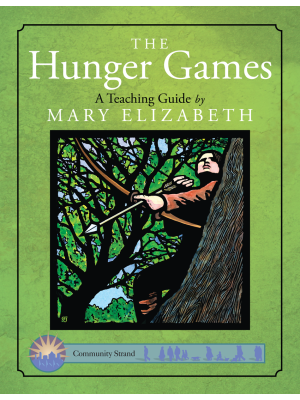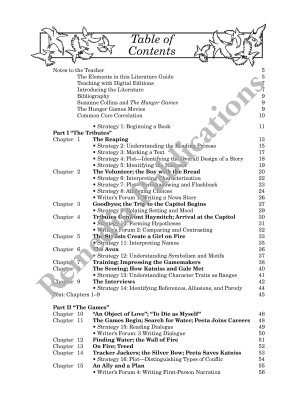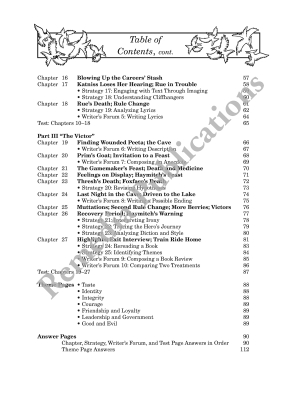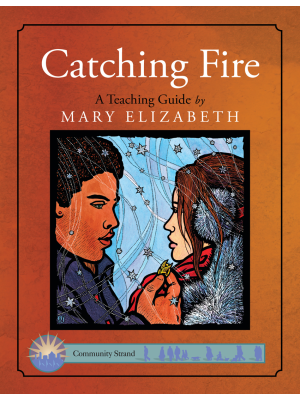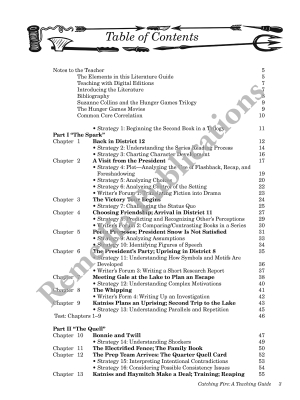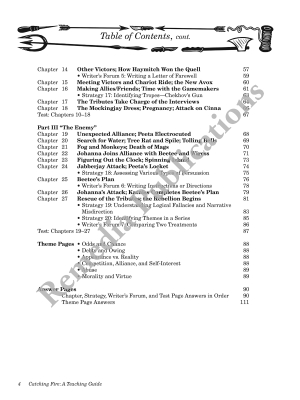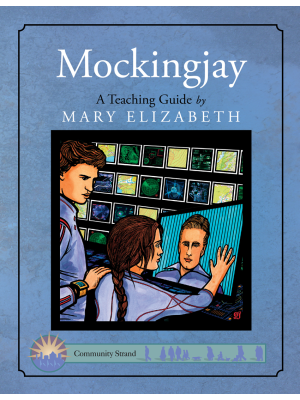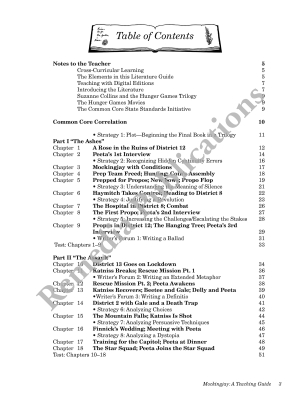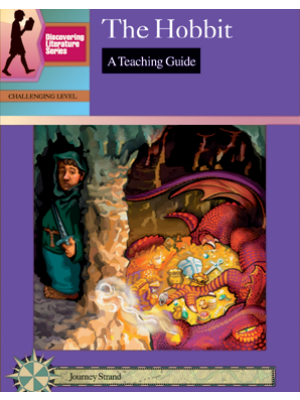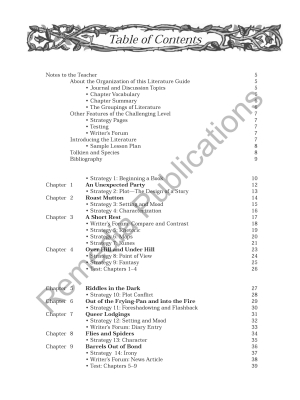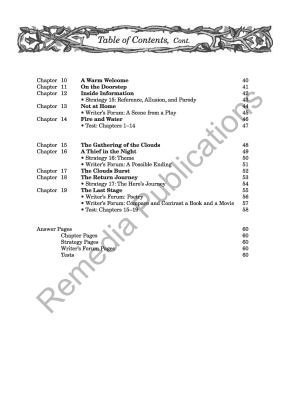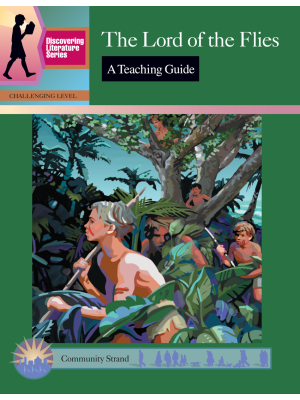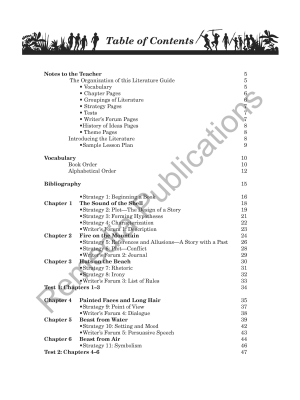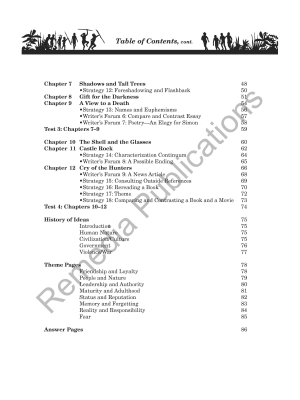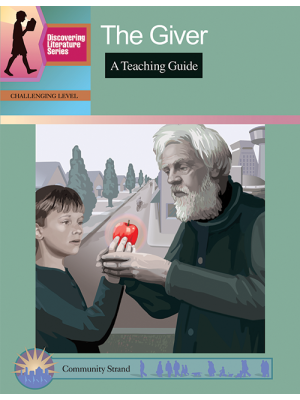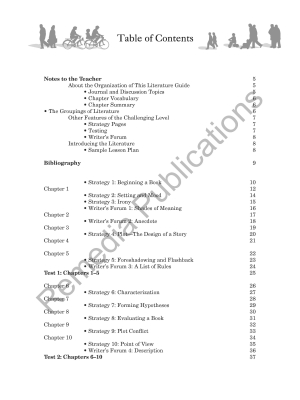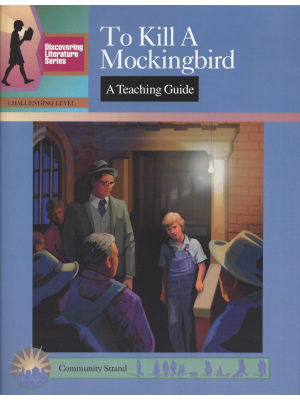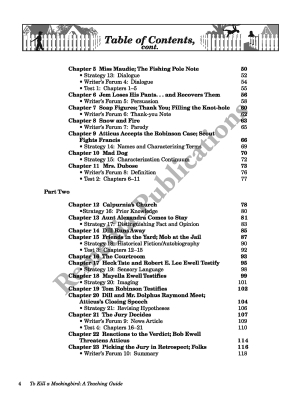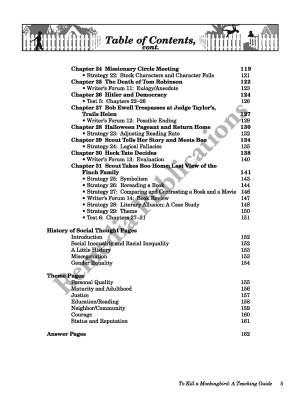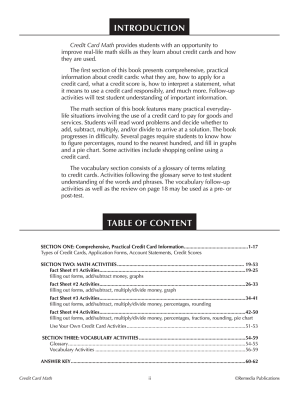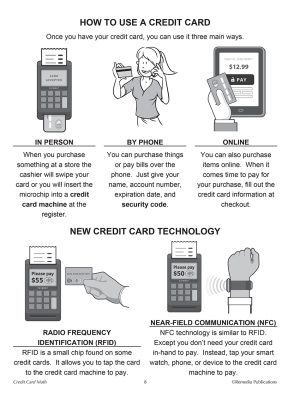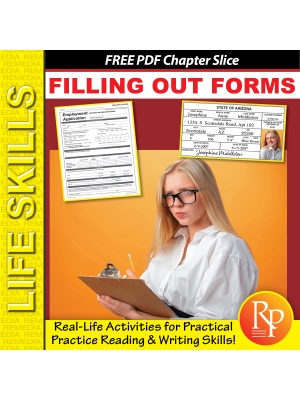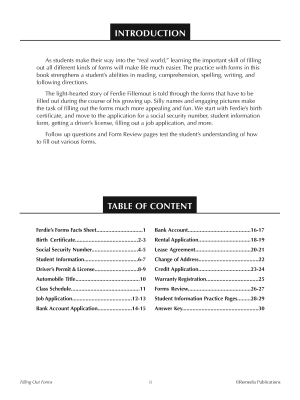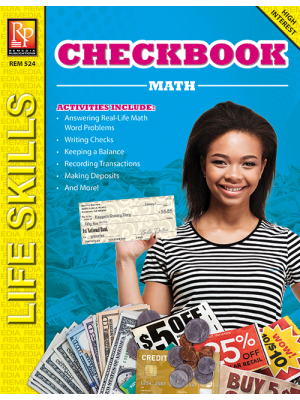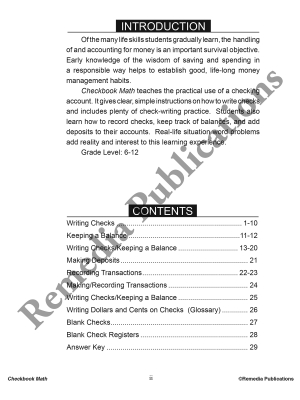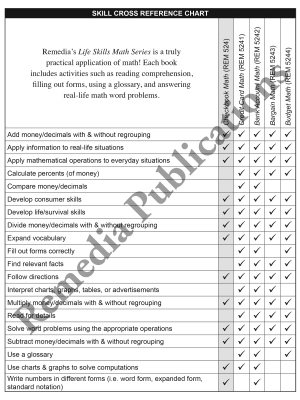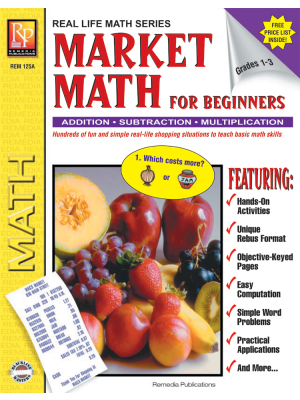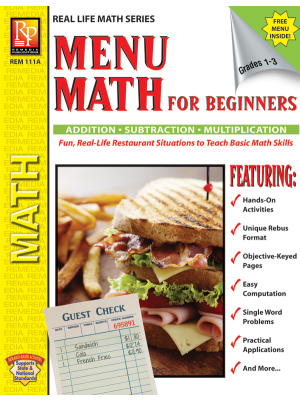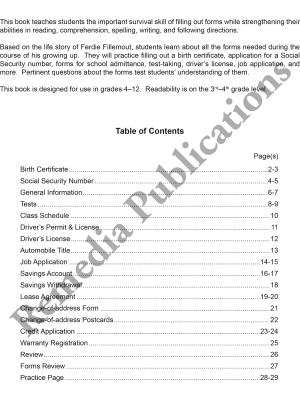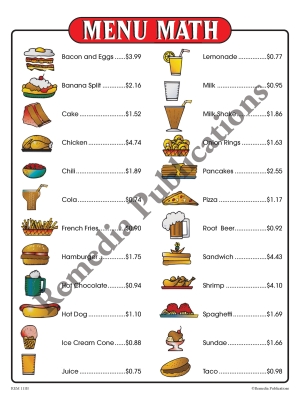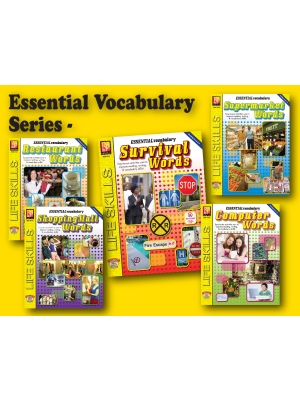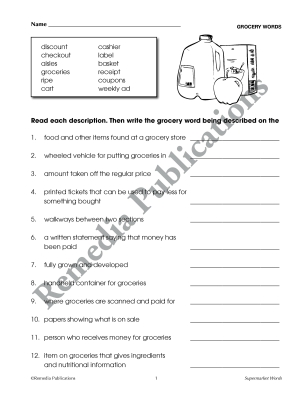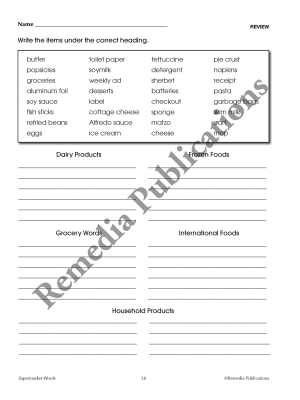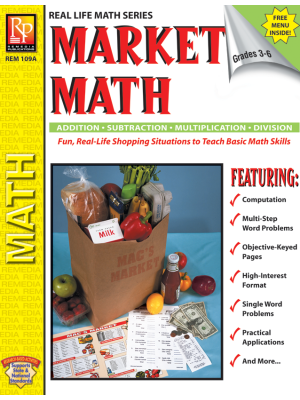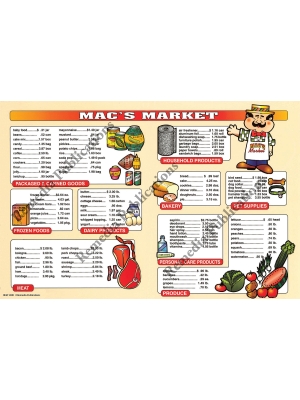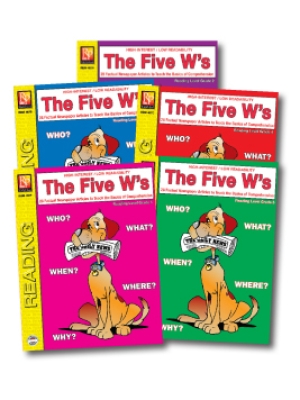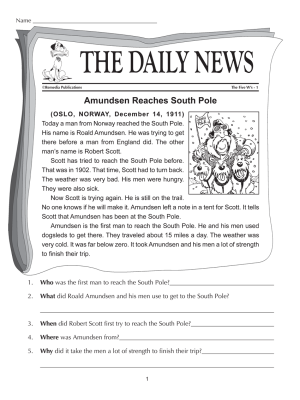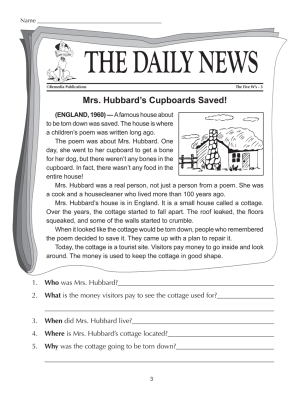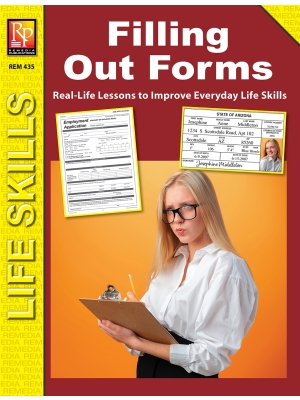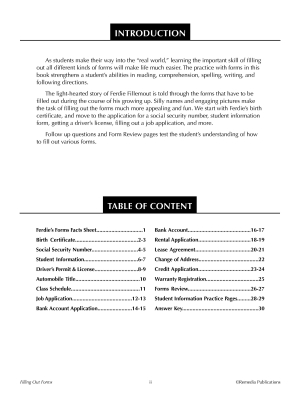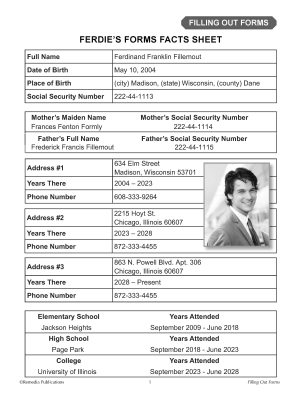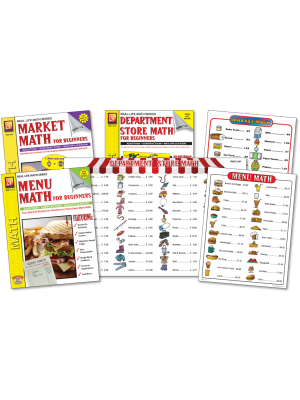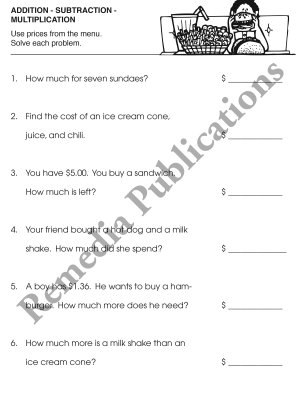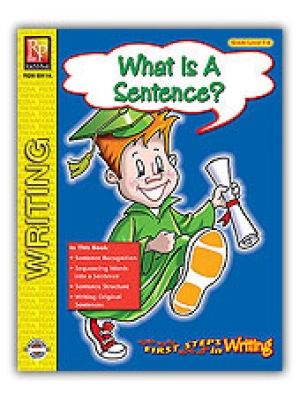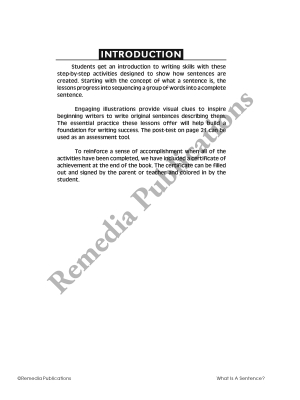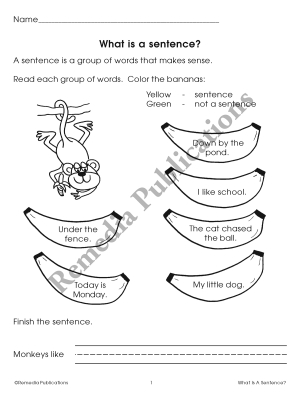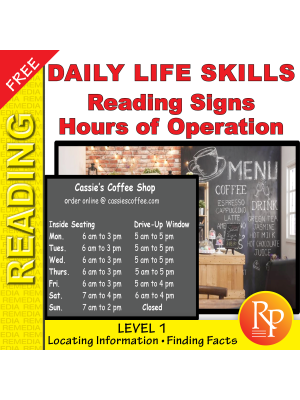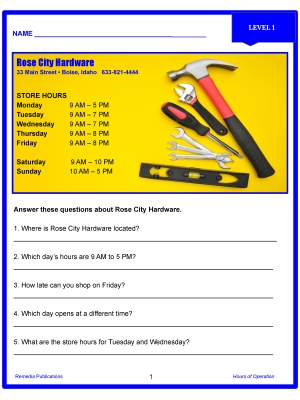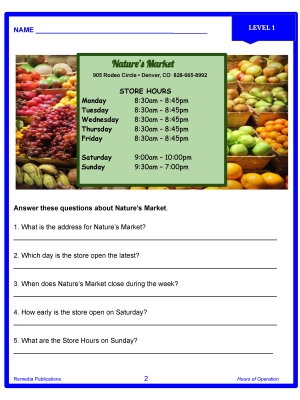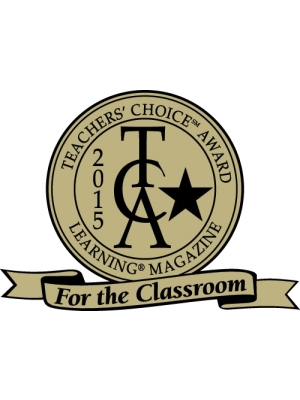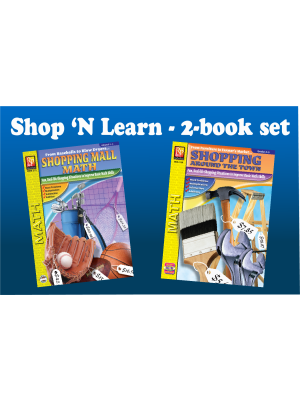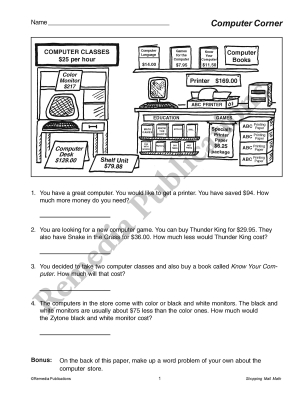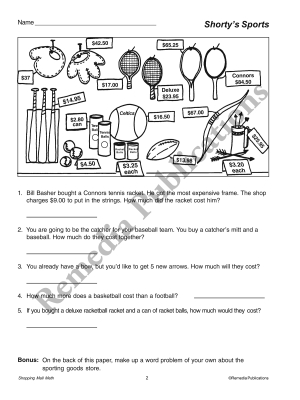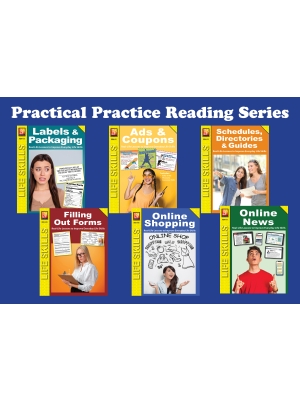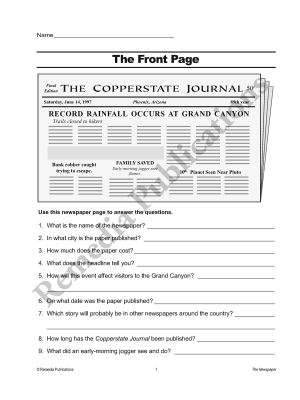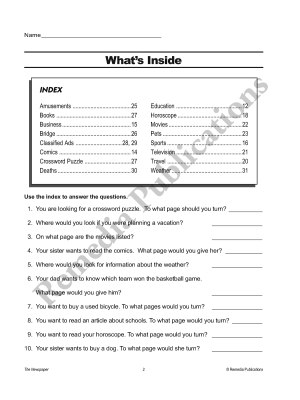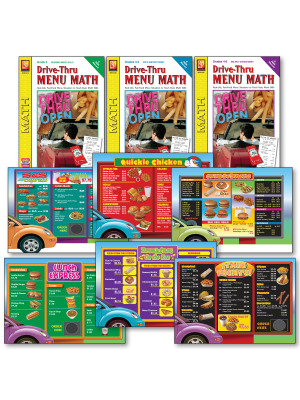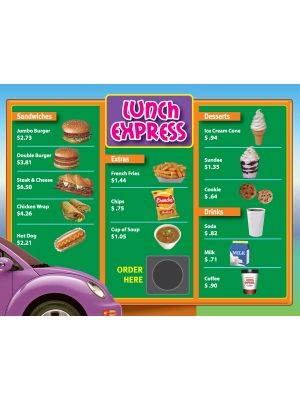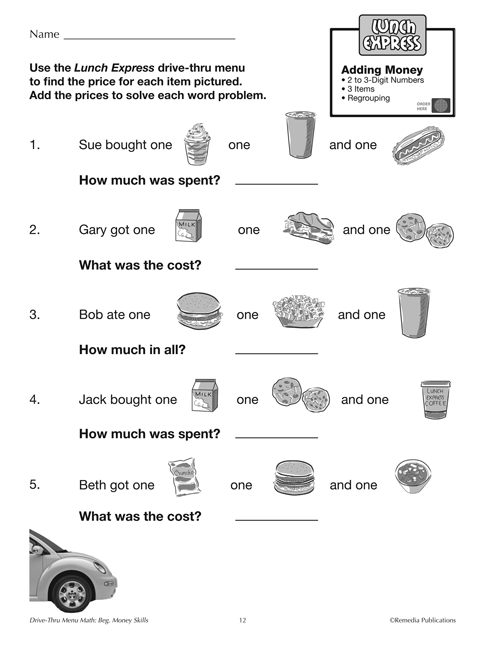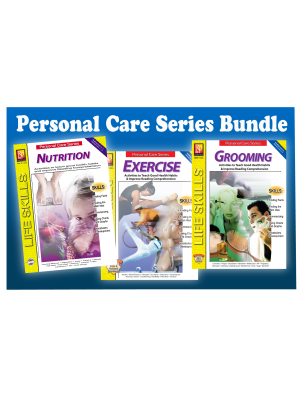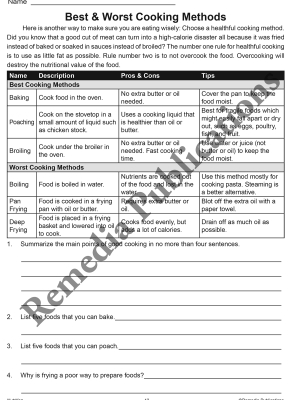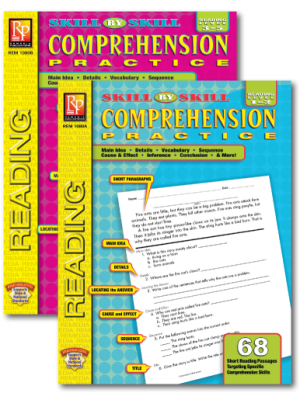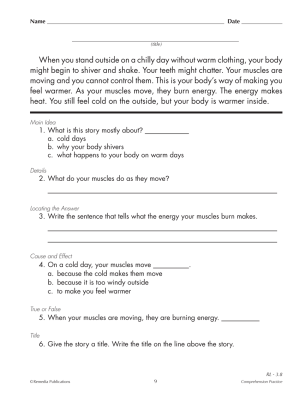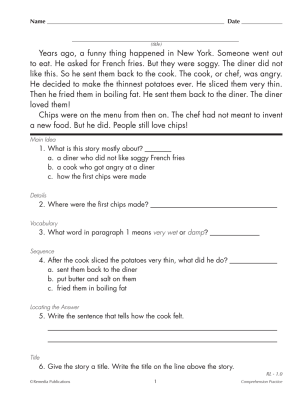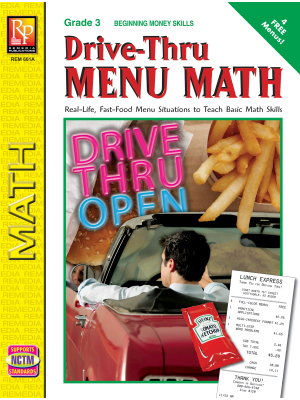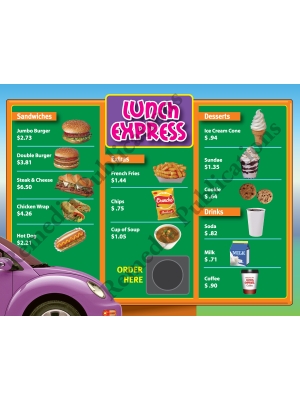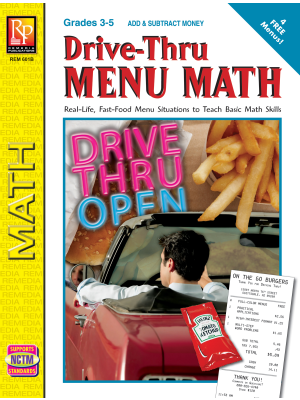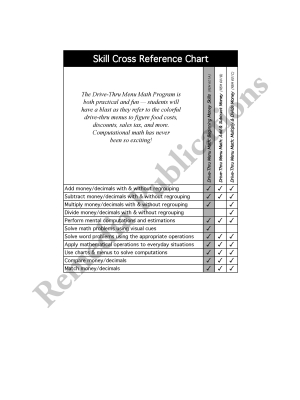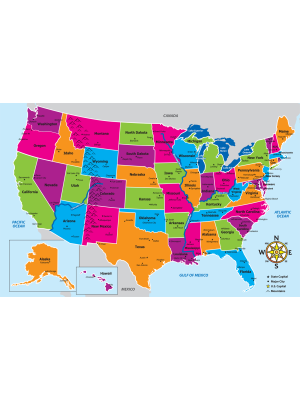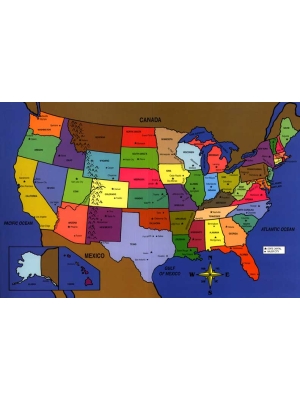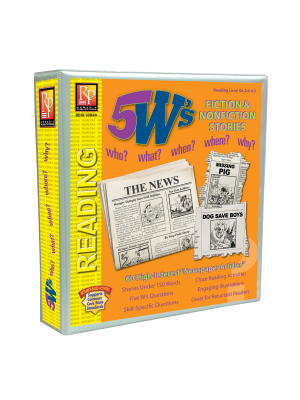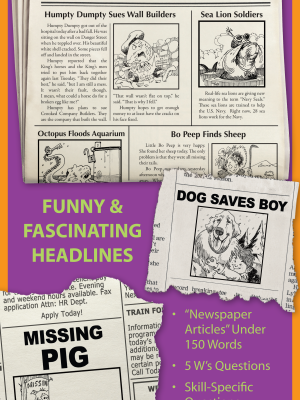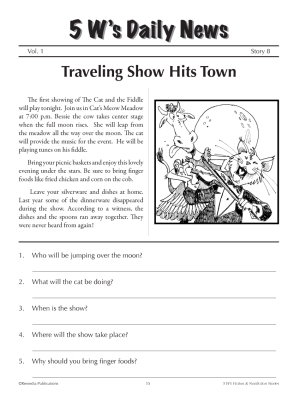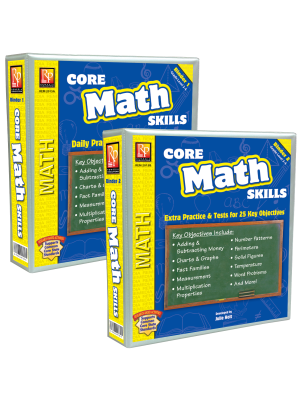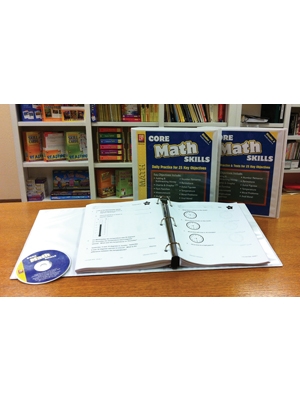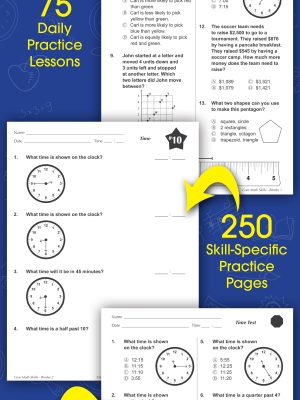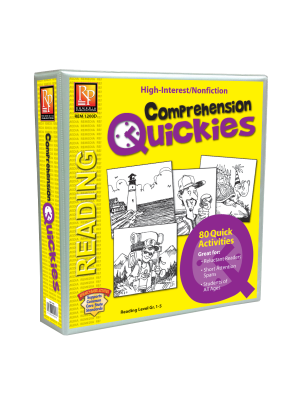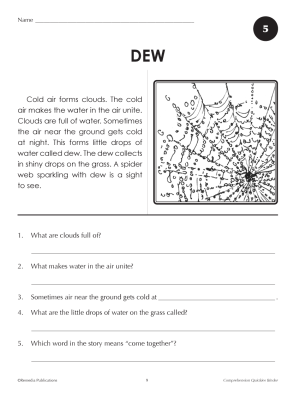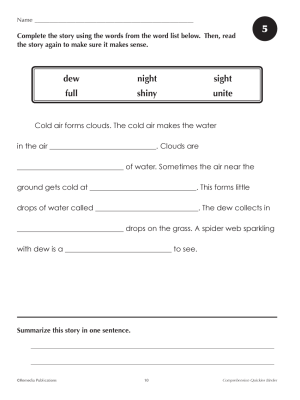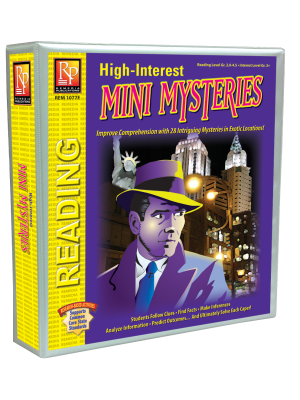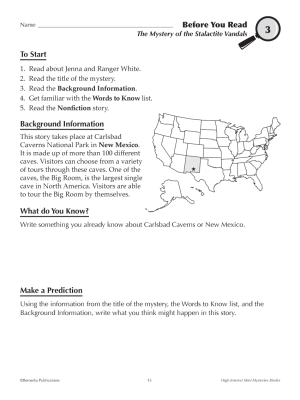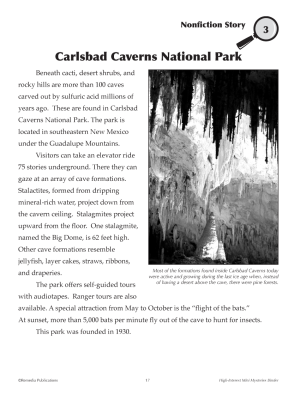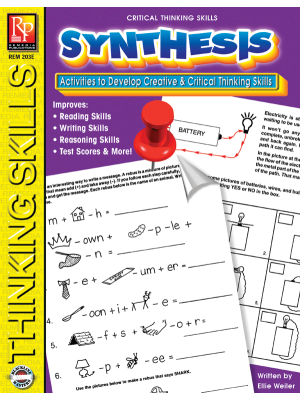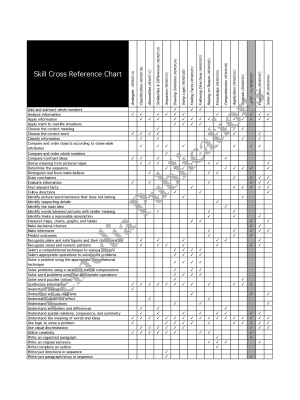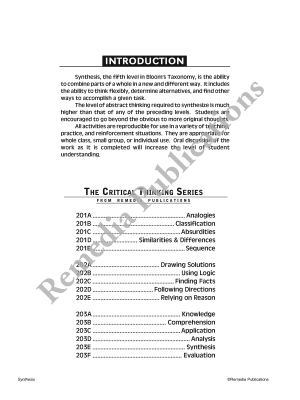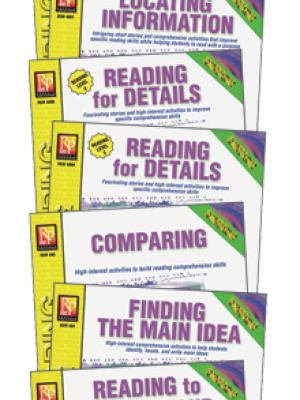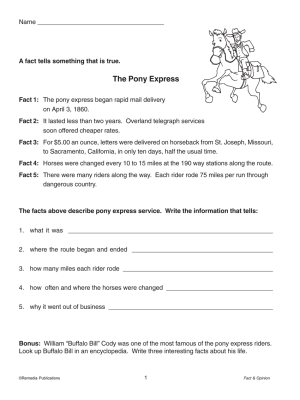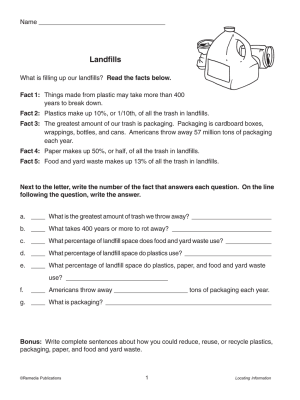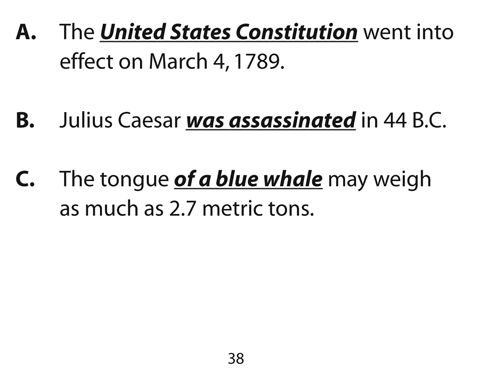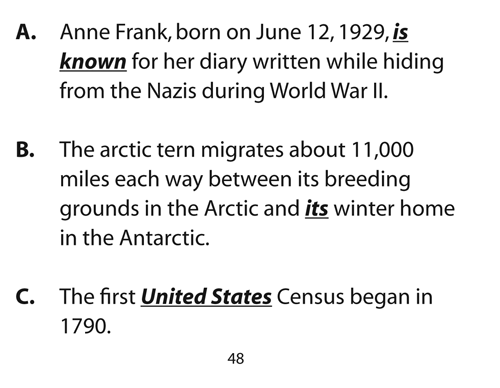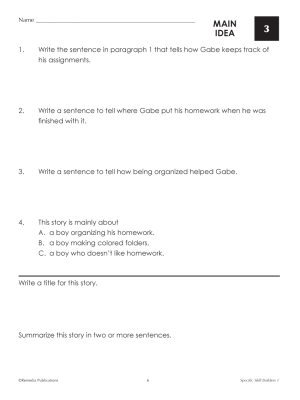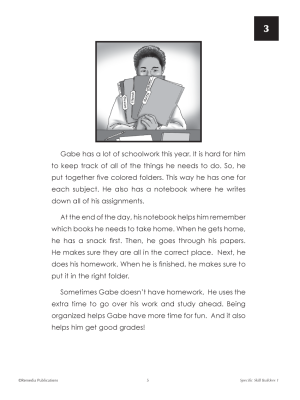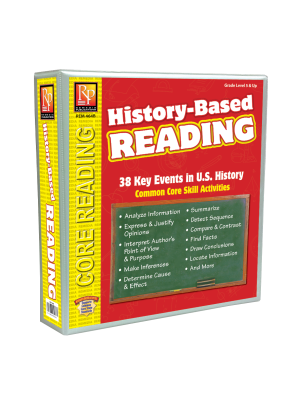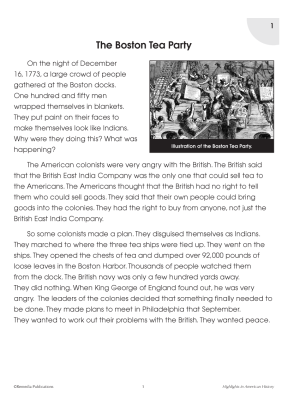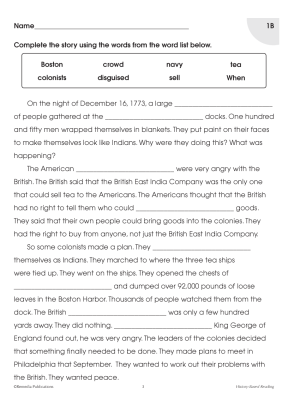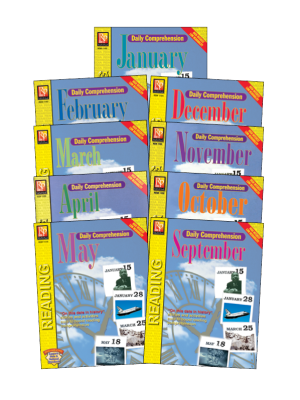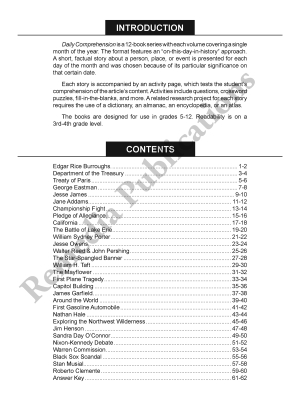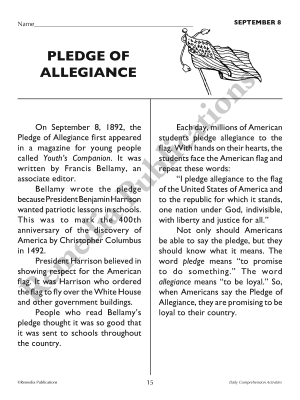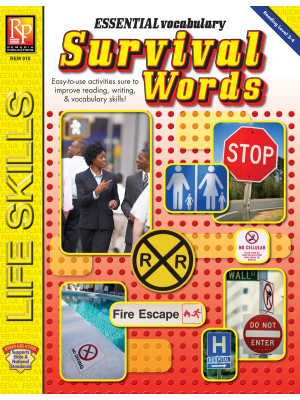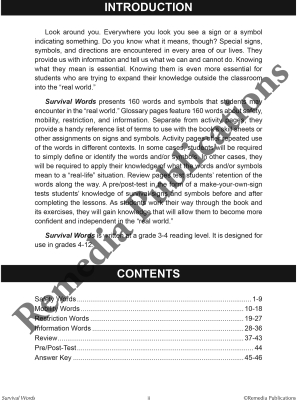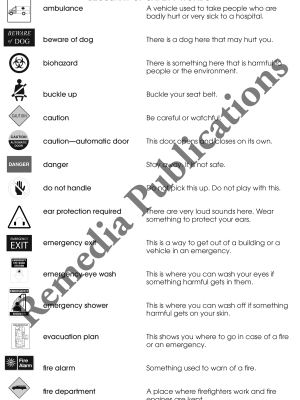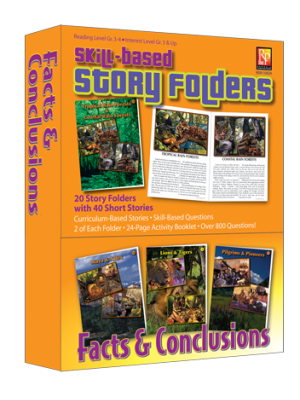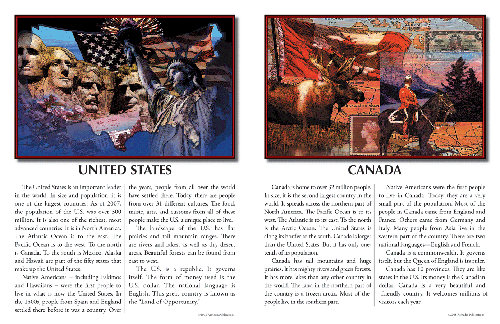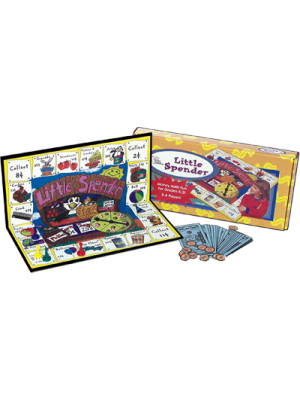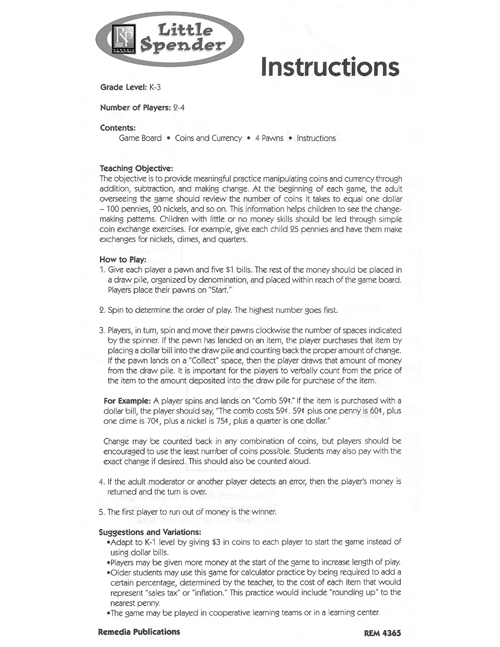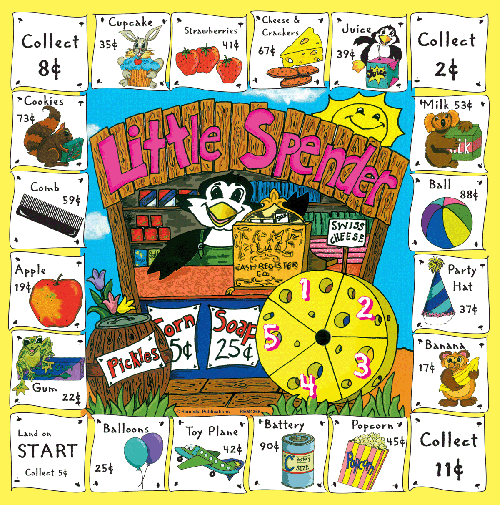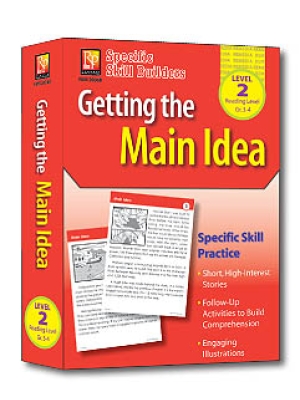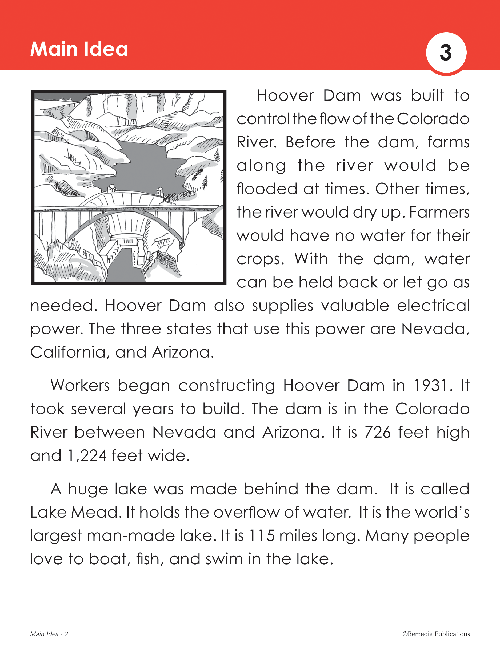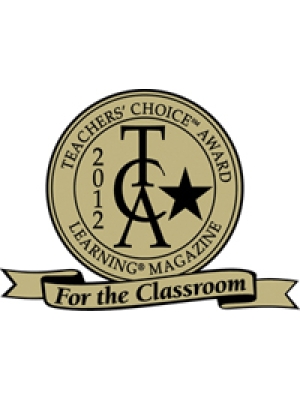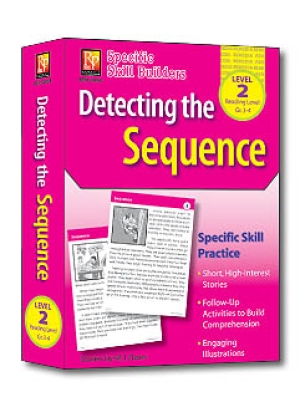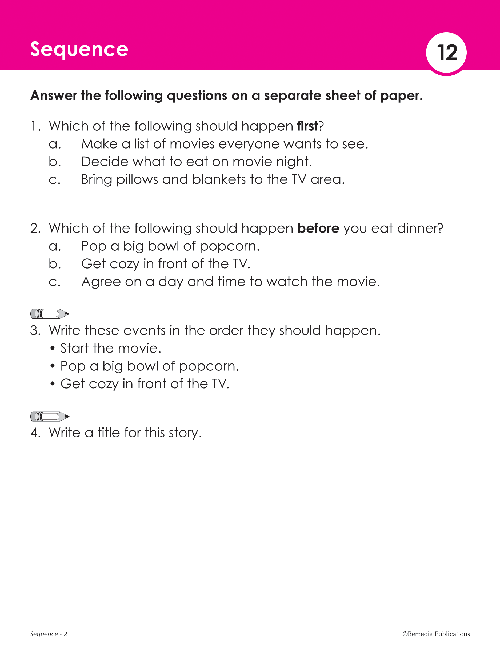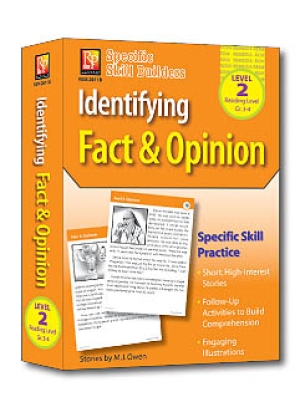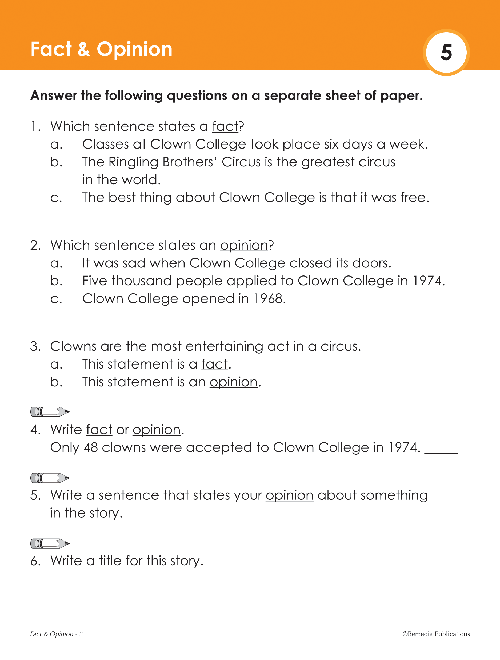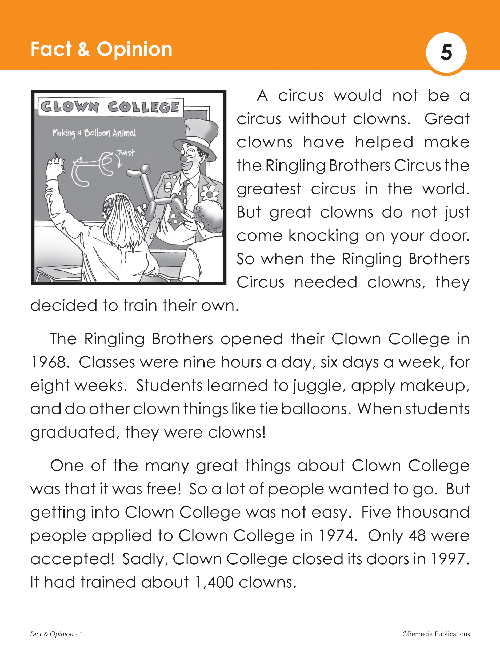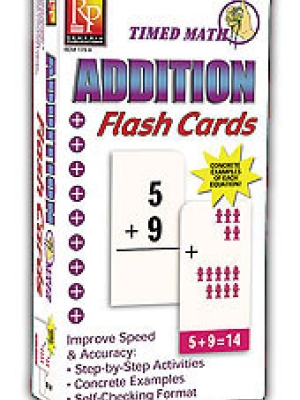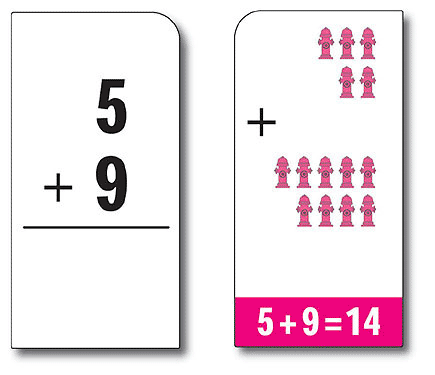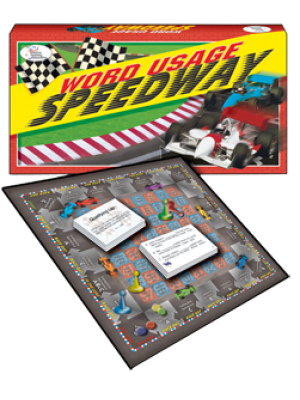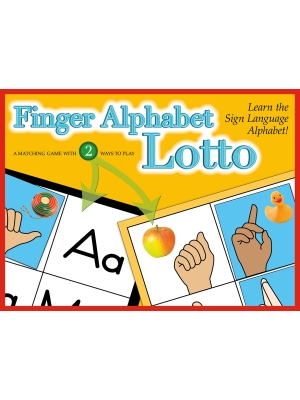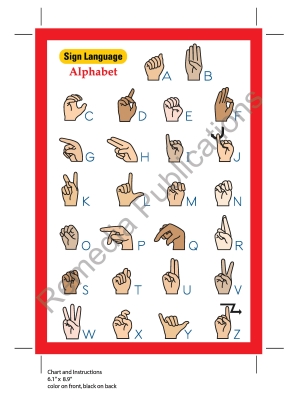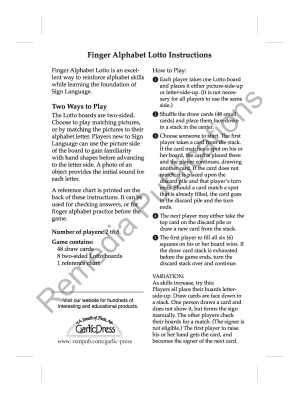Grade Level: 6-12
Interest Level: N/A
Reading Level: N/A
The Discovering Literature Series is designed to develop a student’s appreciation for good literature and to improve reading comprehension. At the Challenging Level, we focus on a variety of reading strategies that help students construct meaning from their experience with literature as well as make connections between their reading and the rest of their lives. The strategies reflect the demands of each literature selection.
In these study guides, we will focus on beginning a book, setting and mood, irony, plot structure, foreshadowing and flashback, characterization, forming hypotheses, evaluating a book, plot conflict, point of view, inferencing, rereading, theme, narration, and the genre of dystopias.
Each chapter analysis is organized into three basic elements: Journal and Discussion Topics, Chapter Vocabulary, and Chapter Summary.
Other features include Strategy Pages to increase students’ understanding of strategies to enhance their comprehension of literature; Testing at the end of each chapter grouping, and Writer’s Forum for students’ to write in a variety of genres relating to the text.
This 91-page teaching guide includes an answer key.
Table of Contents
About the Organization of This Literature Guide
• Journal and Discussion Topics
• Chapter Vocabulary
• Chapter Summary
The Groupings of Literature
Other Features of the Challenging Level
• Strategy Pages
• Testing
• Writer’s Forum
Introducing the Literature
• Sample Lesson Plan
• Strategy 1: Beginning a BookChapter 1:
• Strategy 2: Setting and MoodChapter 2:
• Strategy 3: Irony
• Writer’s Forum 1: Shades of Meaning
• Writer’s Forum 2: AnecdoteChapter 3:
• Skill Page: Compare and ContrastChapter 4:
• Writer’s Forum: Family
Chapter 5:
• Strategy 5: Foreshadowing and FlashbackTest 1: Chapters 1-5
• Writer’s Forum 3: A List of Rules
Chapter 6:
• Strategy 6: CharacterizationChapter 7:
• Strategy 7: Forming HypothesesChapter 8:
• Strategy 8: Evaluating a BookChapter 9:
• Strategy 9: Plot ConflictChapter 10:
• Strategy 10: Point of View
• Writer’s Forum 4: DescriptionTest 2: Chapters 6-10
Chapter 11:
Chapter 12:
Chapter 13
• Writer’s Forum 5: PersuasionChapter 14
• Strategy 11: Characterization ContinuumChapter 15
• Writer’s Forum 6: Diary EntriesTest 3: Chapters 11-15
Chapter 16
• Writer’s Forum 7: Personal LetterChapter 17
• Strategies 12: InferencingChapter 18
Chapter 19
• Strategy 13: Rereading a BookChapter 20
• Writer’s Forum 8: Reflection
• Strategy 14: Theme
• Writer’s Forum 9: EssayTest 4: Chapters 16-20
Chapter 21
• Strategy 15: NarrationChapter 22
Chapter 23
• Strategy 16: Dystopias
• Writer’s Forum 10: Extending a StoryTest 5: Chapters 21-23
Answer Pages
The Giver: Discovering Literature Teaching Guide
- Product Code: REM GP097
- Viewed: 31303
- Availability: In Stock
$15.99
Grade Level: 6-12
Interest Level: N/A
Reading Level: N/A
The Discovering Literature Series is designed to develop a student’s appreciation for good literature and to improve reading comprehension. At the Challenging Level, we focus on a variety of reading strategies that help students construct meaning from their experience with literature as well as make connections between their reading and the rest of their lives. The strategies reflect the demands of each literature selection.
In these study guides, we will focus on beginning a book, setting and mood, irony, plot structure, foreshadowing and flashback, characterization, forming hypotheses, evaluating a book, plot conflict, point of view, inferencing, rereading, theme, narration, and the genre of dystopias.
Each chapter analysis is organized into three basic elements: Journal and Discussion Topics, Chapter Vocabulary, and Chapter Summary.
Other features include Strategy Pages to increase students’ understanding of strategies to enhance their comprehension of literature; Testing at the end of each chapter grouping, and Writer’s Forum for students’ to write in a variety of genres relating to the text.
This 91-page teaching guide includes an answer key.
Table of Contents
About the Organization of This Literature Guide
• Journal and Discussion Topics
• Chapter Vocabulary
• Chapter Summary
The Groupings of Literature
Other Features of the Challenging Level
• Strategy Pages
• Testing
• Writer’s Forum
Introducing the Literature
• Sample Lesson Plan
• Strategy 1: Beginning a BookChapter 1:
• Strategy 2: Setting and MoodChapter 2:
• Strategy 3: Irony
• Writer’s Forum 1: Shades of Meaning
• Writer’s Forum 2: AnecdoteChapter 3:
• Skill Page: Compare and ContrastChapter 4:
• Writer’s Forum: Family
Chapter 5:
• Strategy 5: Foreshadowing and FlashbackTest 1: Chapters 1-5
• Writer’s Forum 3: A List of Rules
Chapter 6:
• Strategy 6: CharacterizationChapter 7:
• Strategy 7: Forming HypothesesChapter 8:
• Strategy 8: Evaluating a BookChapter 9:
• Strategy 9: Plot ConflictChapter 10:
• Strategy 10: Point of View
• Writer’s Forum 4: DescriptionTest 2: Chapters 6-10
Chapter 11:
Chapter 12:
Chapter 13
• Writer’s Forum 5: PersuasionChapter 14
• Strategy 11: Characterization ContinuumChapter 15
• Writer’s Forum 6: Diary EntriesTest 3: Chapters 11-15
Chapter 16
• Writer’s Forum 7: Personal LetterChapter 17
• Strategies 12: InferencingChapter 18
Chapter 19
• Strategy 13: Rereading a BookChapter 20
• Writer’s Forum 8: Reflection
• Strategy 14: Theme
• Writer’s Forum 9: EssayTest 4: Chapters 16-20
Chapter 21
• Strategy 15: NarrationChapter 22
Chapter 23
• Strategy 16: Dystopias
• Writer’s Forum 10: Extending a StoryTest 5: Chapters 21-23
Answer Pages

